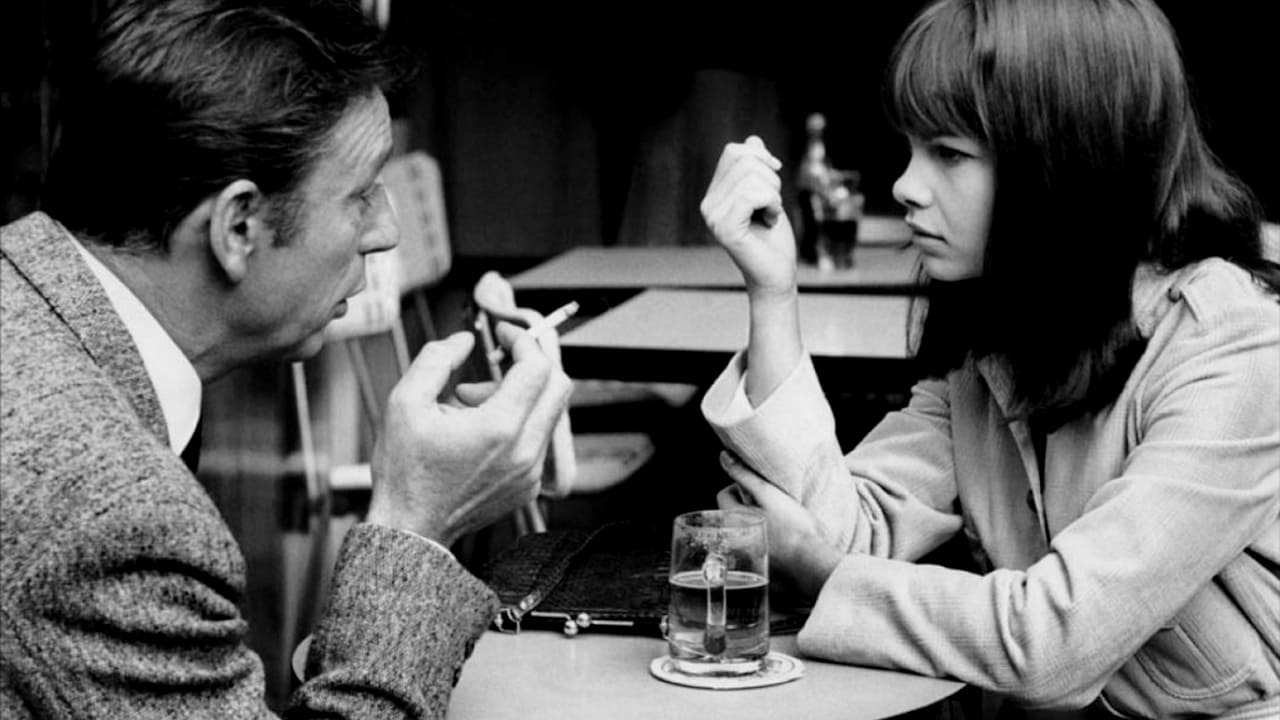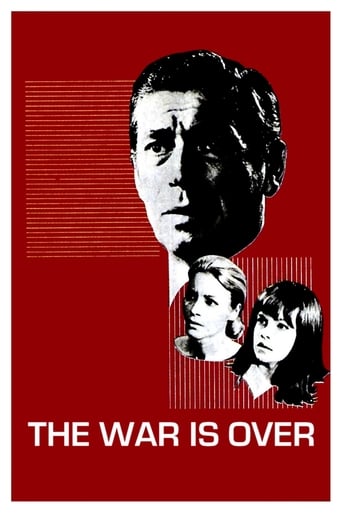

Just perfect...
... View Morean ambitious but ultimately ineffective debut endeavor.
... View MoreJust intense enough to provide a much-needed diversion, just lightweight enough to make you forget about it soon after it’s over. It’s not exactly “good,” per se, but it does what it sets out to do in terms of putting us on edge, which makes it … successful?
... View MoreThis is a gorgeous movie made by a gorgeous spirit.
... View MoreMany folks who watch this film today might be a bit confused about the context, so I'll try to explain. When the Spanish Republican army was defeated by Francisco Franco's troops at the end of the Spanish Civil War in the late 1930s, many Republicans (many of whom were communists and socialists) were jailed or killed--and many more poured over the border into exile in countries like France.The character Yves Montand plays in this film, Diego Mora, is one of these communist exiles--one who regularly sneaks back and forth between the countries on missions for his cause. Exactly what he does on these missions is never talked about very much in these films but he and his comrades are trying to keep alive a small dissident group within Spain. However, during one of these many trips, he is taken in for questioning at the border. Somehow the police have become suspicious but with the help of a young French lady (Genevieve Bujold) he's able to extricate himself from custody. But, others in the organization weren't so lucky and were arrested. Because of this, Mora plans on returning to Spain to try to alert others in his cell so they can escape. However, instead of doing this, he spends so much of the film doing nothing in particular. In fact, that is a HUGE problem with the film. He learns about the possible leak in his organization and the arrests early on in the film and yet doesn't return to help the other agents until about 90 minutes later. In the interim, he meets with several women he cares about or wishes to have sex* with before his return to Spain. In addition, he talks and talks and talks--too much to keep the film interesting or well-paced. Overall, an interesting and well acted curio--especially since Montand himself was a communist and much of the story seems ironic in light of his own background as an Italian expatriate. But not a particularly enjoyable curio.*Oddly, the first sex scene in the film was one of the most unintentionally funny I have ever seen. Instead of showing any real skin, the camera kept showing everything BUT--and with all sorts of artsy angles and composition. It made me laugh and seemed bizarre in light of the very ordinary and non-prudish sex scene later in the film. Why they did this, I have no idea. Perhaps the first nude scene (with Bujold) was done this way because she was uncomfortable with nudity and I'd sure love to know why they handled it in such a silly manner.
... View MoreI was less interested in the political drama, than in the subtlety of the acting and the psychological realities of the film. I saw the main character, Diego, in a quest for identity, attempting to make an impact in this world, and constructing much of his life in his imagination as a part of his strategy to stay alive. When asked if he was tired of lying (about his work as a revolutionary and his identity) he responds that he is not lying but constructing "barricades" (to insure his safety).His quest to conceal his identity and stay alive can be seen as a parallel to the multiplicity of personae that we assume in this life, thinking that this is the only way that we might survive our life's experiences and prevent loss. It is a universal illusion that we can control our destiny and avoid the loss of love, admiration, meaning and purpose.As counterpoint, what the other characters thought so important and so real...the overthrow of Franco, the police preventing the revolutionaries from accomplishing that task, having a child with Marianne, making love (personal and impersonal)...becomes meaningless to him. Diego (if even that is his "real" name) cannot live a "normal" life in Spain, but he cannot live anywhere else. He is a Spaniard and can be only that. He "solves" his dilemma: he becomes tired enough to move towards his capture and death. A poignant, painful, resonant narrative of a life.
... View MoreCAUTION: NOTES ON PLOT INCLUDEDWell, if you think this movie is about hot sex and Franco, then you could stick to Hemingway. A stunning psychodrama about a man who has seen his life burned out after decades of fighting a "good" but hopeless war, recognizes the futility, and sees another generation committing itself to figurative and literal suicide. Does he stop them? Join them? Can he have any effect at all? Does he try? See the movie. If you're into political drama a la Frankenheimer, Zinnemann, or Costa Gavras, this one is a "ten."But you're right about Genevieve Bujold. Are you ever 8-)
... View MoreWhile i was watching this movie i was feeling that it would get very interesting.But as the minutes were passing i felt more and more sleepy, nothing interesting was happenning, till the sudden end came....lucky me. Maybe that film is going to be nice for Spanish people...who knows.....
... View More